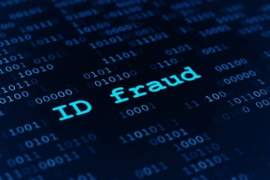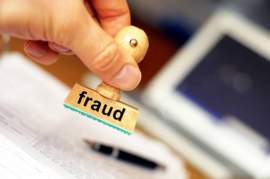
What You Need to Know About Electronic Forgery

What is Forgery?
Forgery is defined as the criminal act that includes the purposeful defrauding, misleading, deception, and misrepresentation of a product, service, or item with the intent to deceive. The scope forgery is a vast one; forgery can include the production of falsified documents, counterfeited items - products intended to resemble other products, and the misrepresentation of fraudulent identification.
The criminal act of forgery can take place in a variety of settings; however - with regard to identity theft - the act of unlawfully recreating the likeness of the signature belonging to another individual or entity with the intent of providing deceitful authorization for economic gain is one of the foremost methodologies undertaken.
How is Forgery Facilitated in order to Commit Identity Theft?
Forgery charges can span the realm of legality; both the nature, as well as the crime itself – with regard to any or all the victims involved – with allow for the a shift within the respective setting in which the act of forgery takes place:
Electronic Forgery
The misuse of computer networks, the internet, and various avenues within the online community in order to defraud potential victims of identity theft is classified as electronic – or online forgery. Electronic Forgery is quite common within the digital age, which can include the illegal and unlawful reproduction of endorsements in the form of electronic signatures in order to illicitly assume the identity of the victim of identity theft.
Financial Forgery
Criminal – fraudulent - activity applicable to the events involving the exchange and circulation of monies or currency may be classified as financial forgery. Identity theft resulting from this type of forgery can occur in a variety of fashions, including fraudulent purchases through the use of finances – and financial information – belonging to the victims of this crime.
Commercial Forgery
Forgery involving business activities, commercial endeavors, or professional operation of the provision of products or services is classified as commercial forgery; items unlawfully purchased with illegal and illicit finances may result from identity theft.
Governmental and Administrative Forgery
Administrative forgery includes the vast expanses of laws, acts, ordinances, and legislation with regard to the Federal Government of the United States; identity theft in an administrative realm may include the unlawful duplication of documentation or the illegal officiating of government-mandated forms and requirements.
How to Prevent Electronic Identity Theft
Due to technological innovation, electronic identity theft is considered by many to be one of the most recently-developed crimes, credited – in part - to the ongoing advent of computer-based technology. This type of technology relies heavily on the Internet and online activity, and as a result, regulations and oversight of this type of activity has been expressed in the spectrum of preventative measures involving the cessation of electronic identity theft.
Companies providing methods of Identity theft prevention - including Lifelock, which is one of the most widely-acclaimed and recognized – have employed protective measures ranging from securing online perimeters to communicative transmission inquiring about the validity of unsubstantiated activity; these types of companies have found their respective niche within the prevention of identity fraud upon providing protection in lieu of infringing on personal privacy.
NEXT: Wire Fraud Defined





















